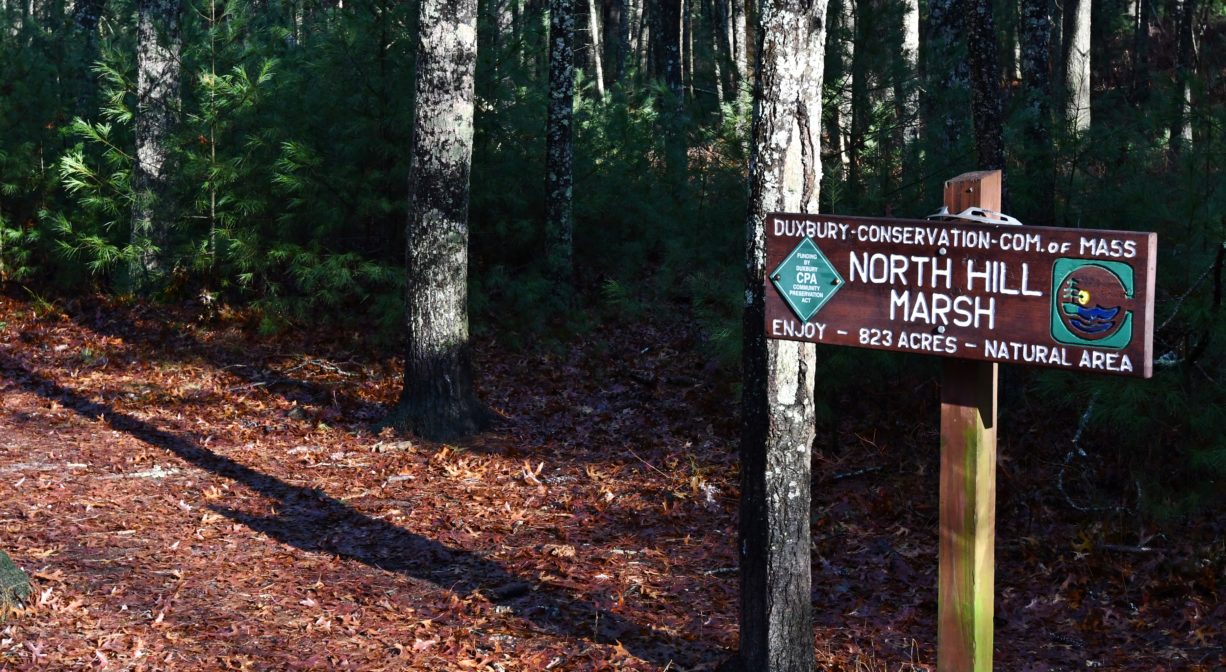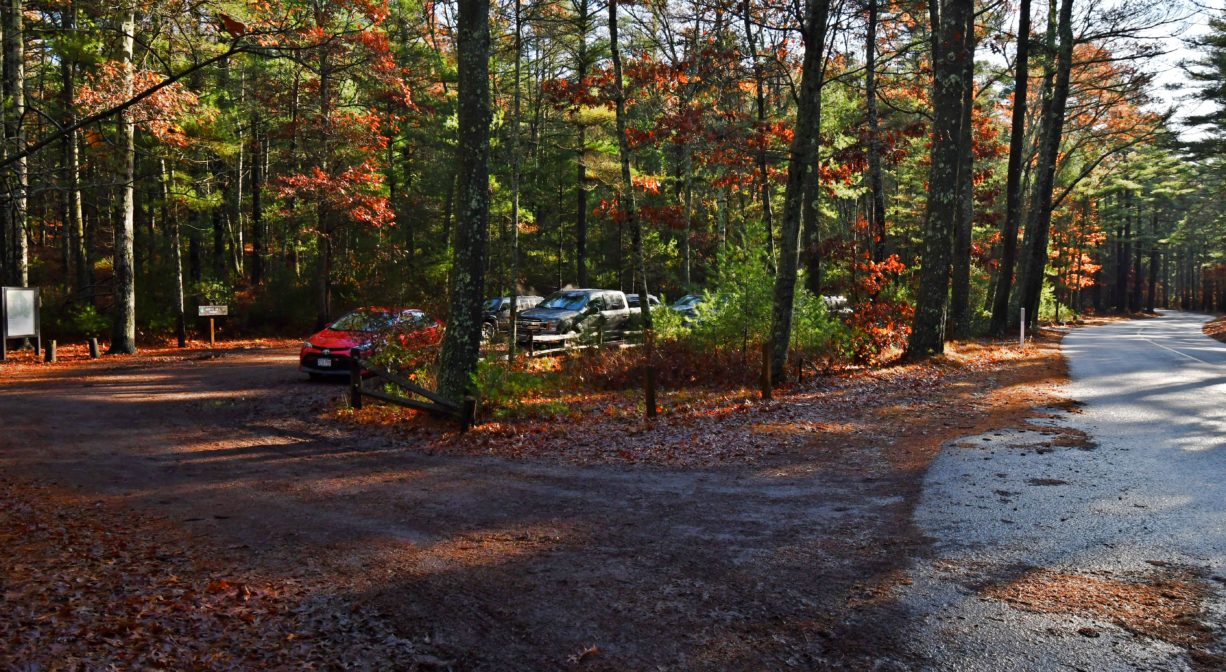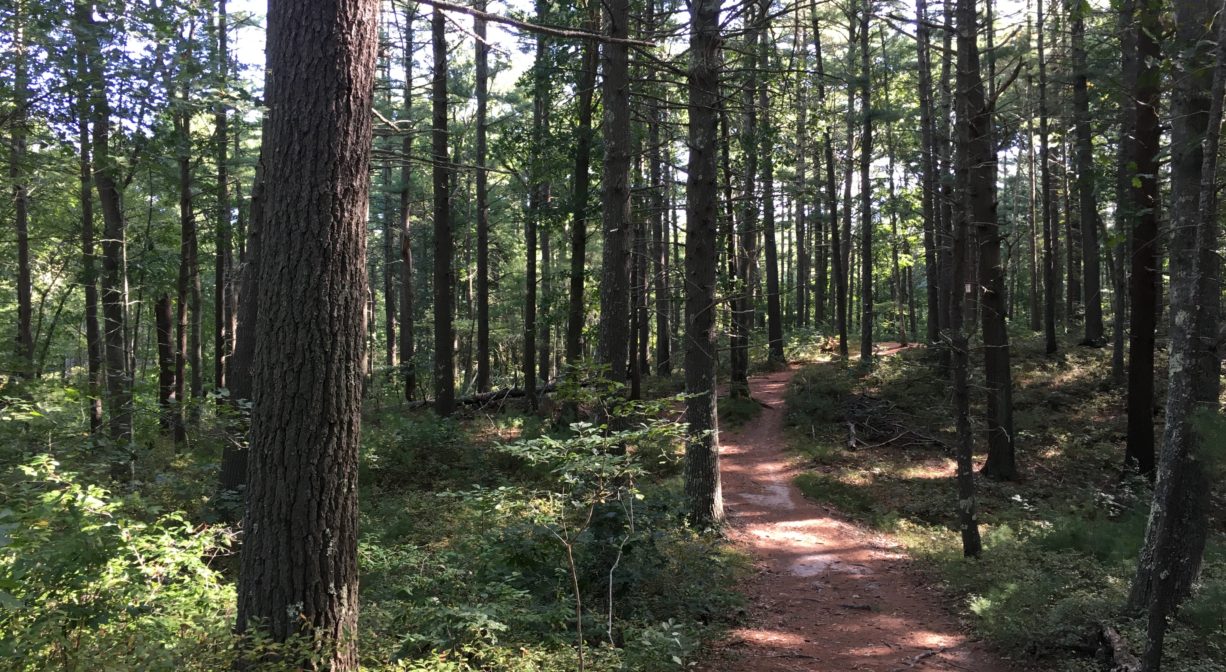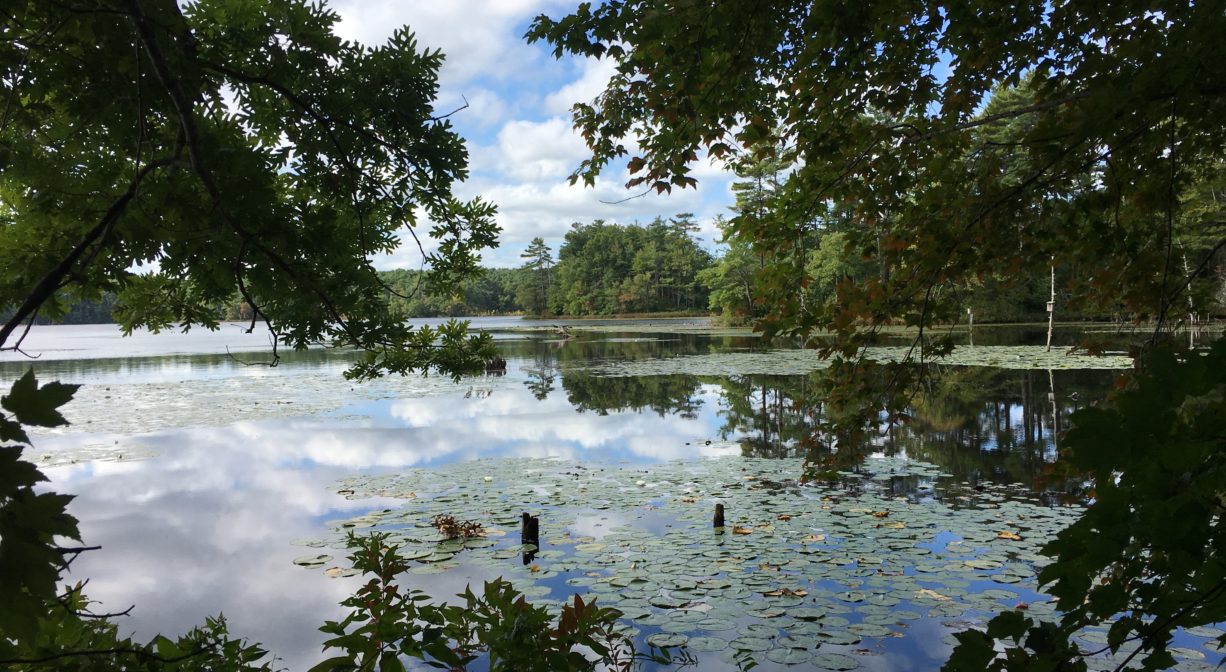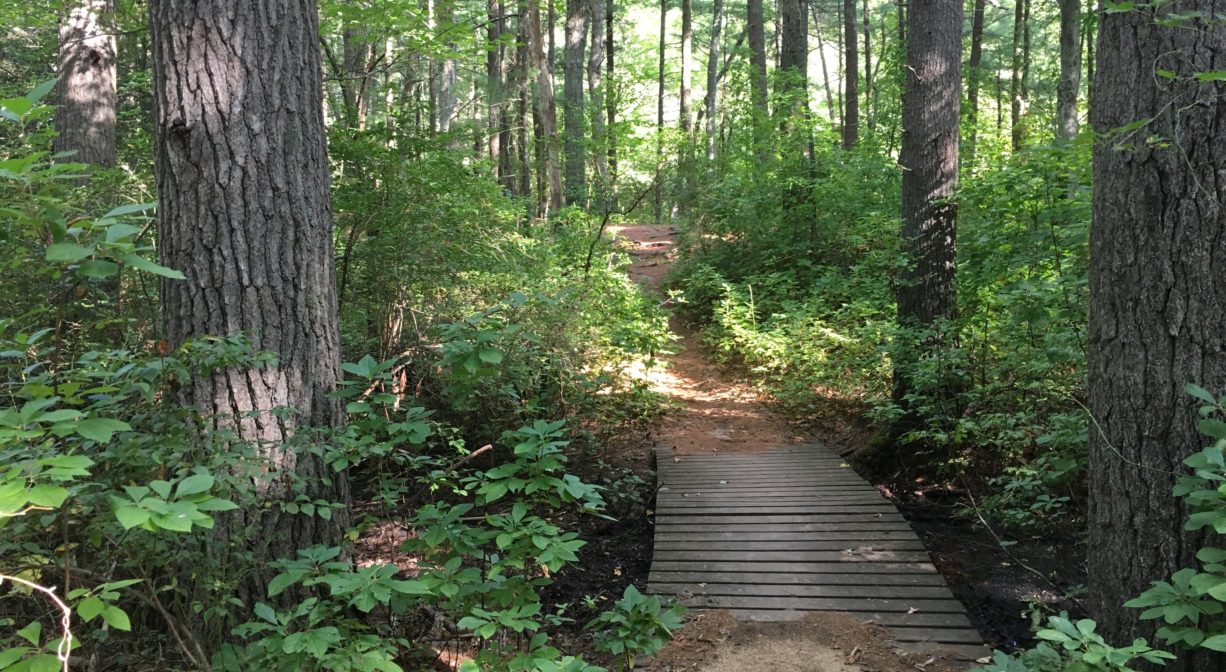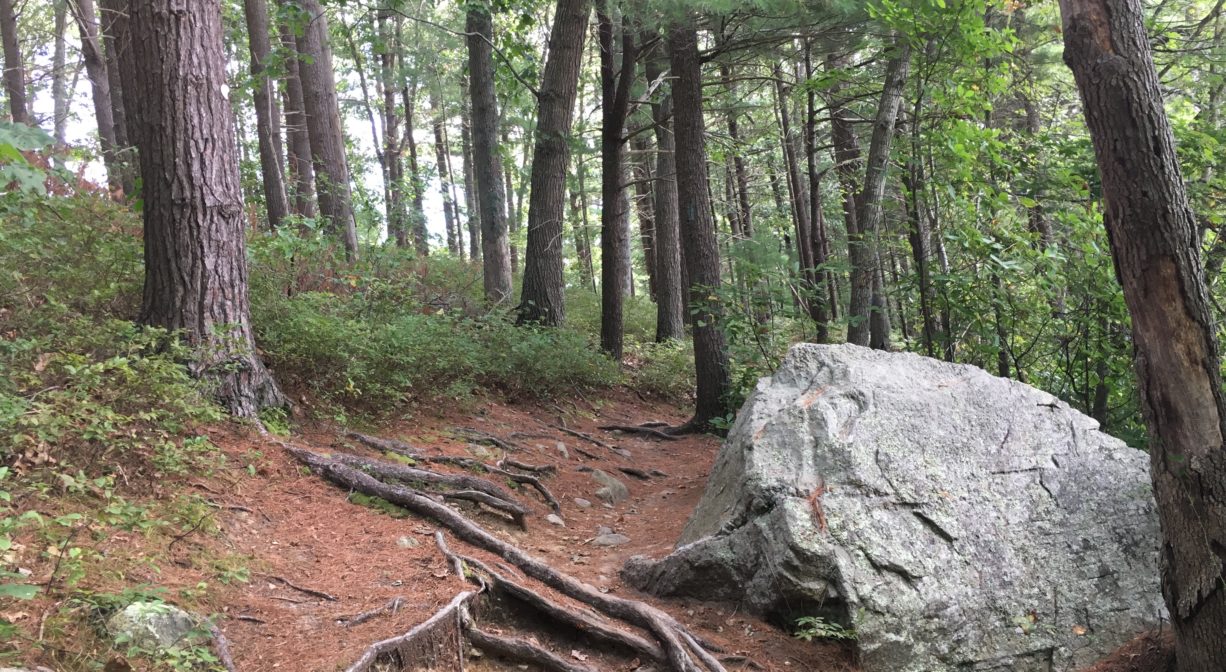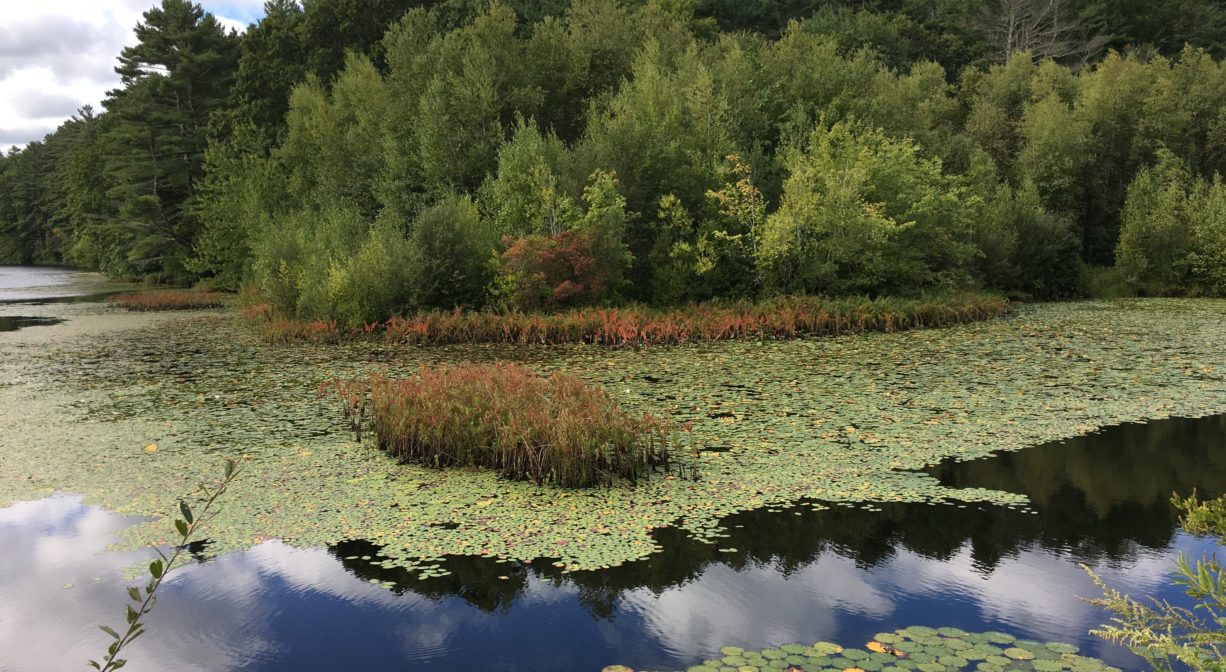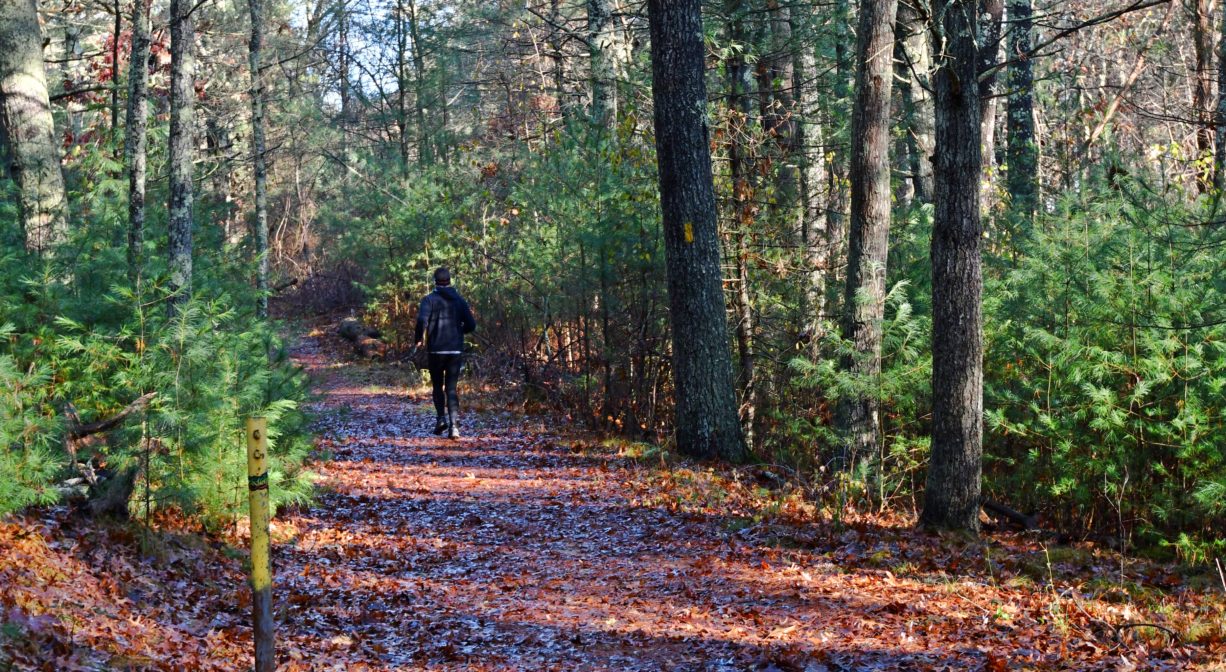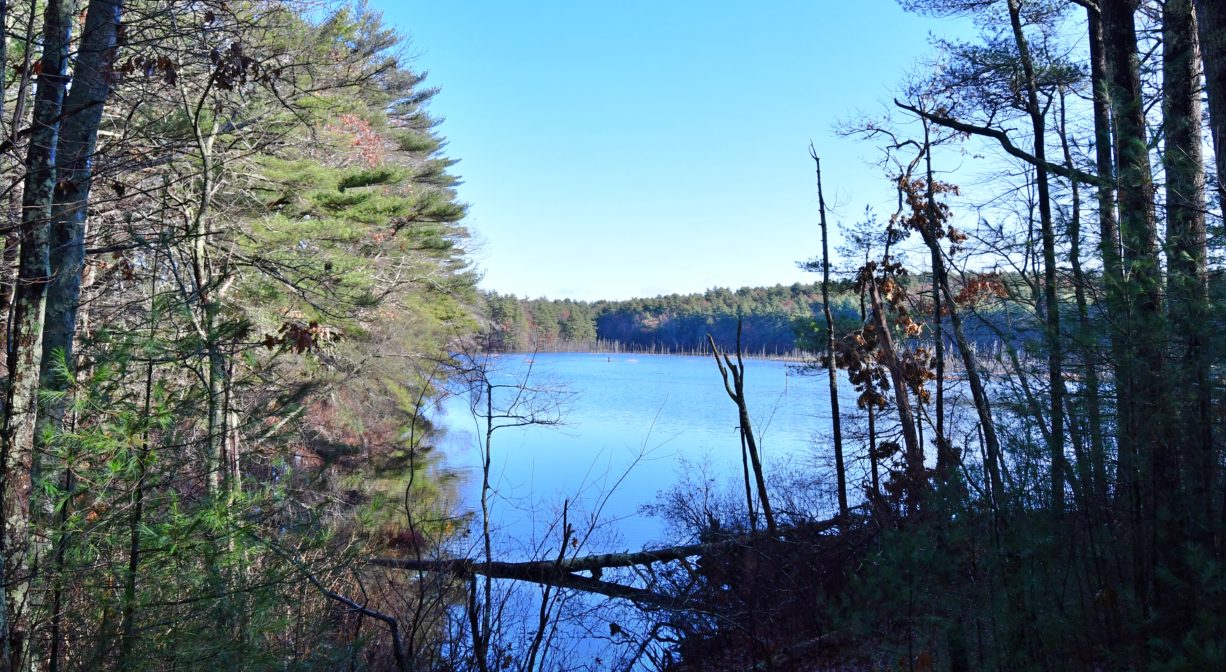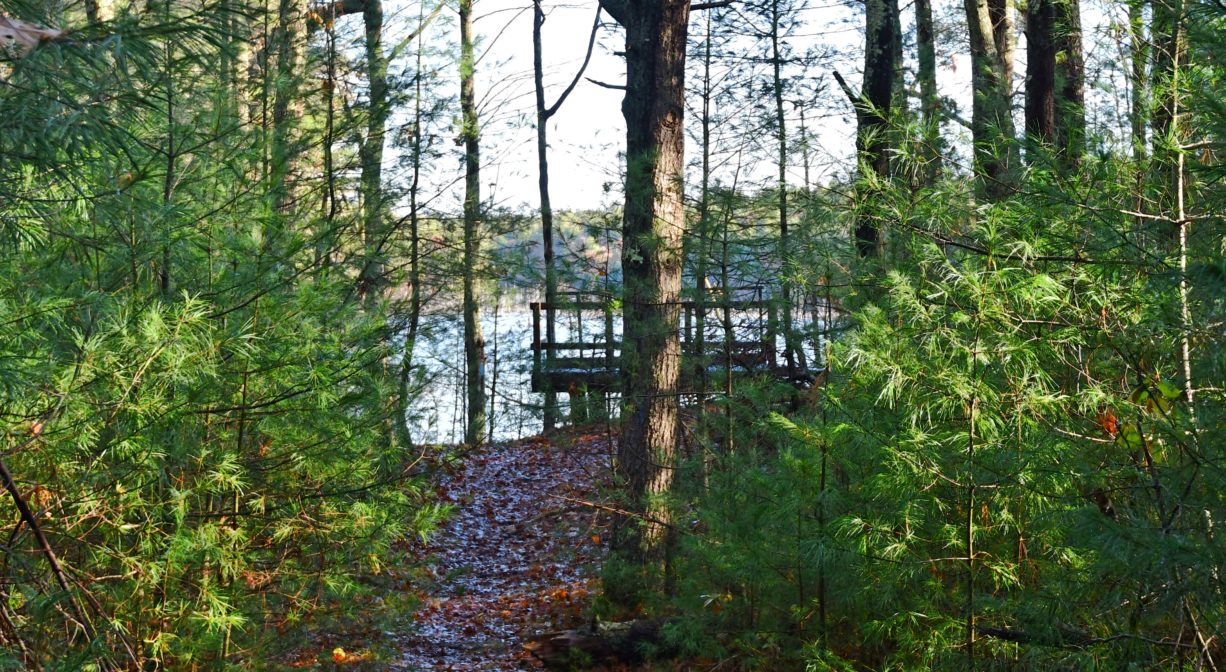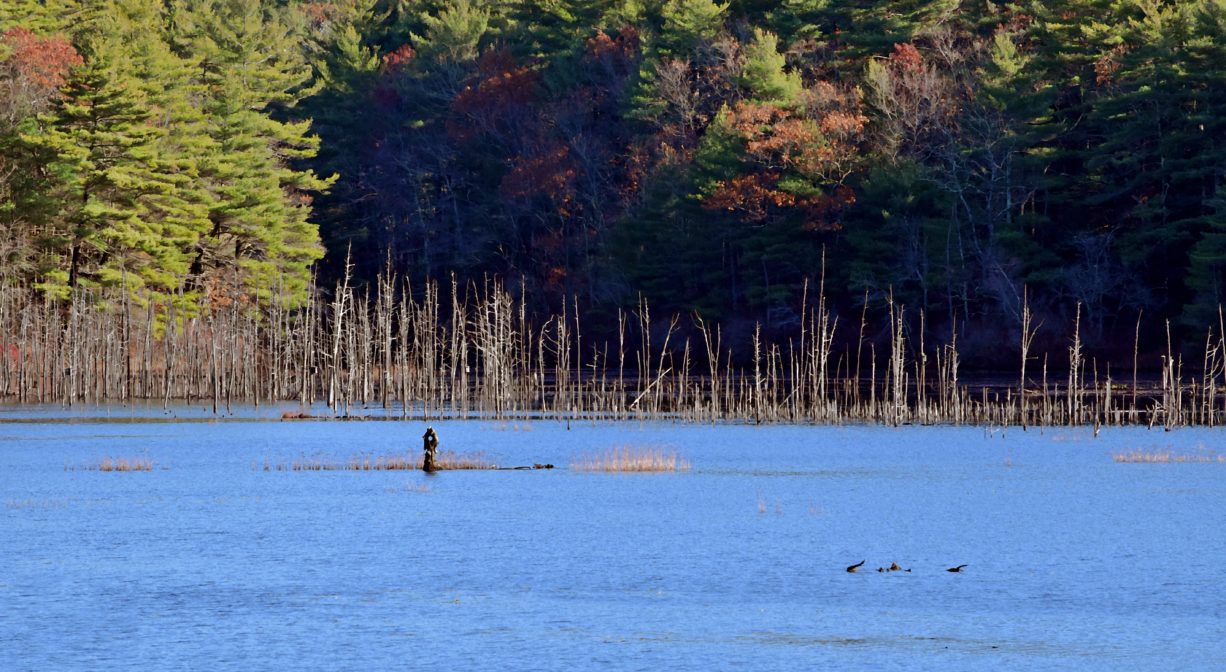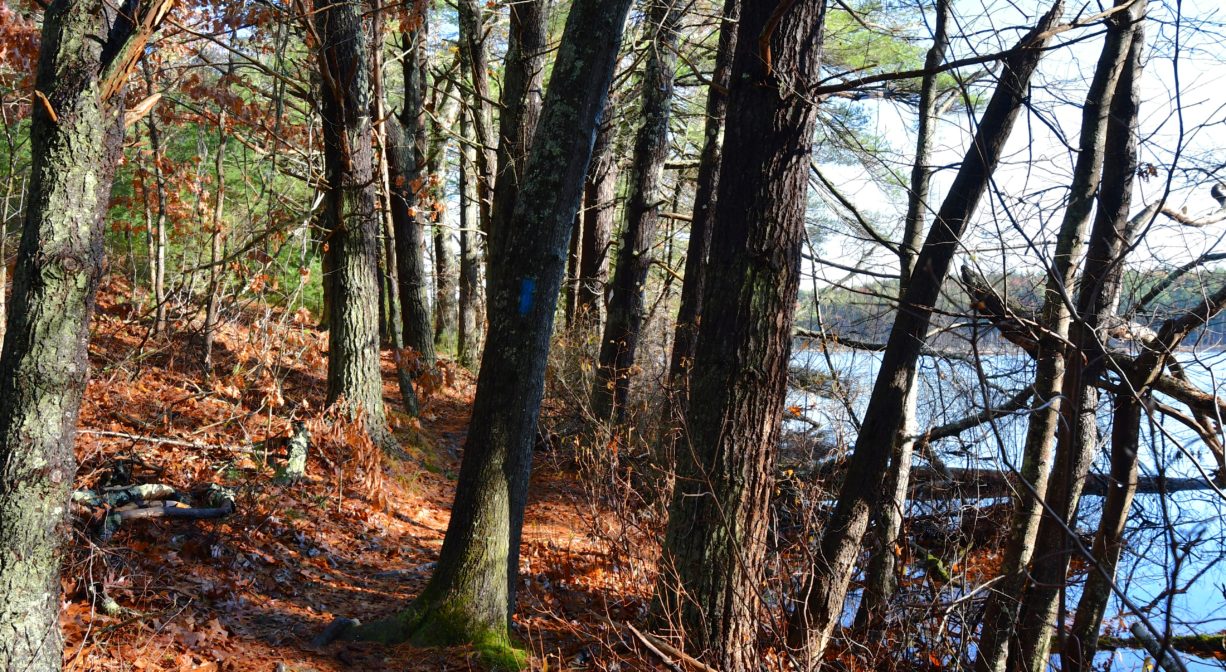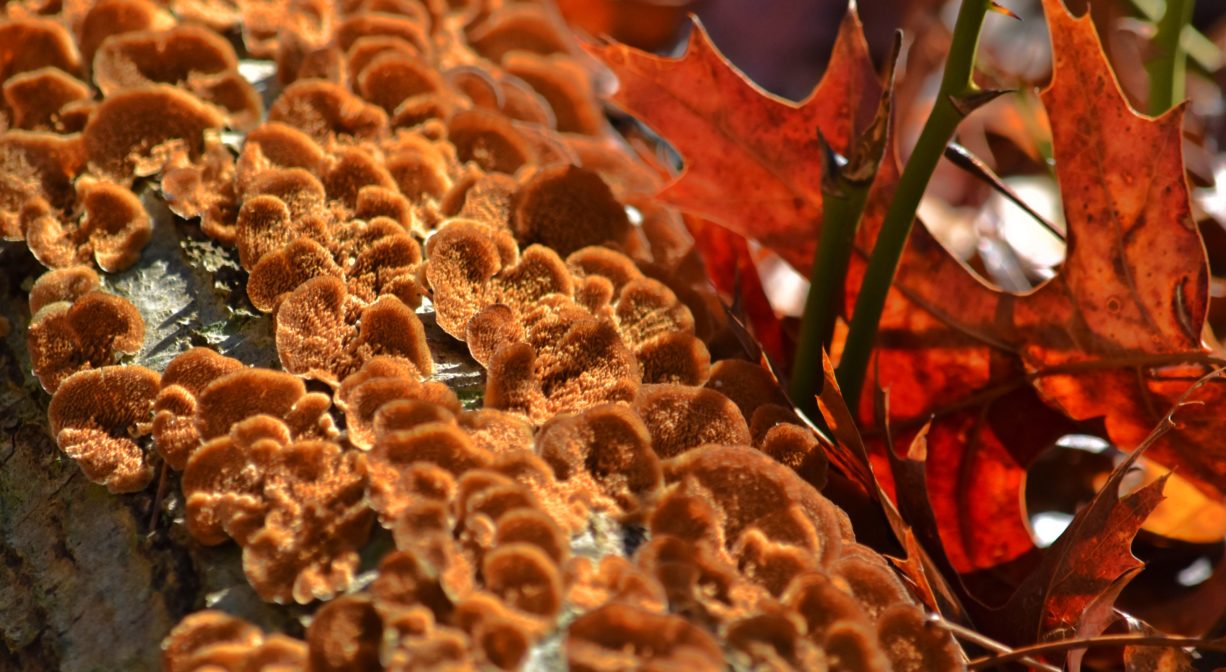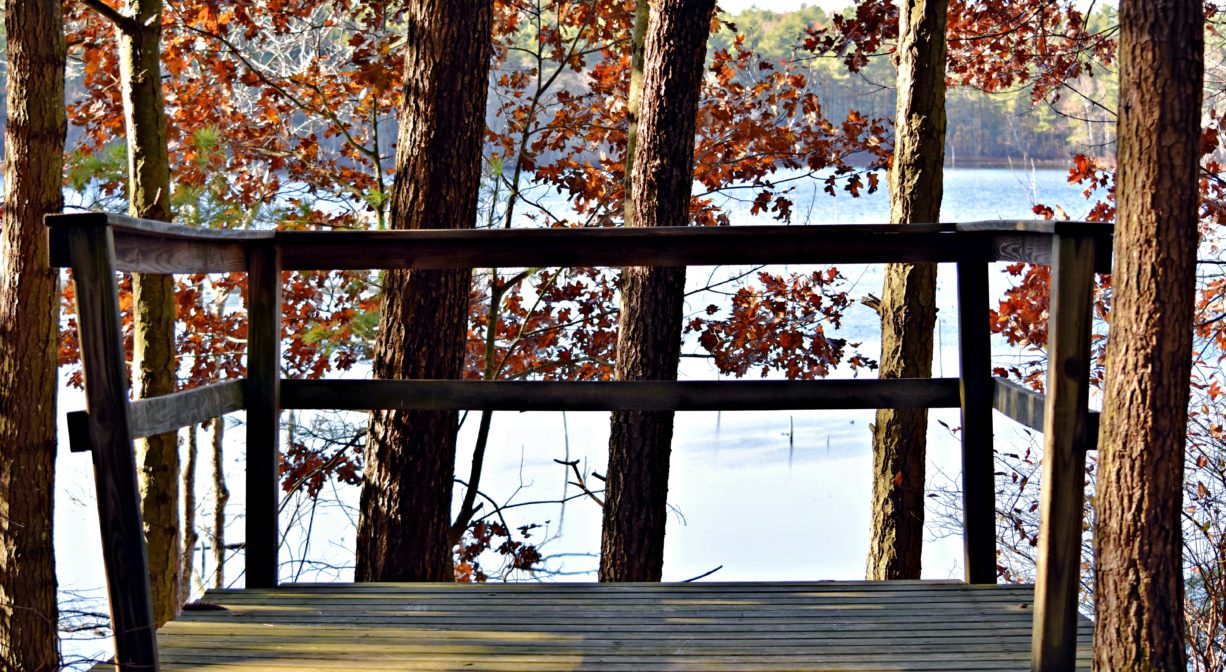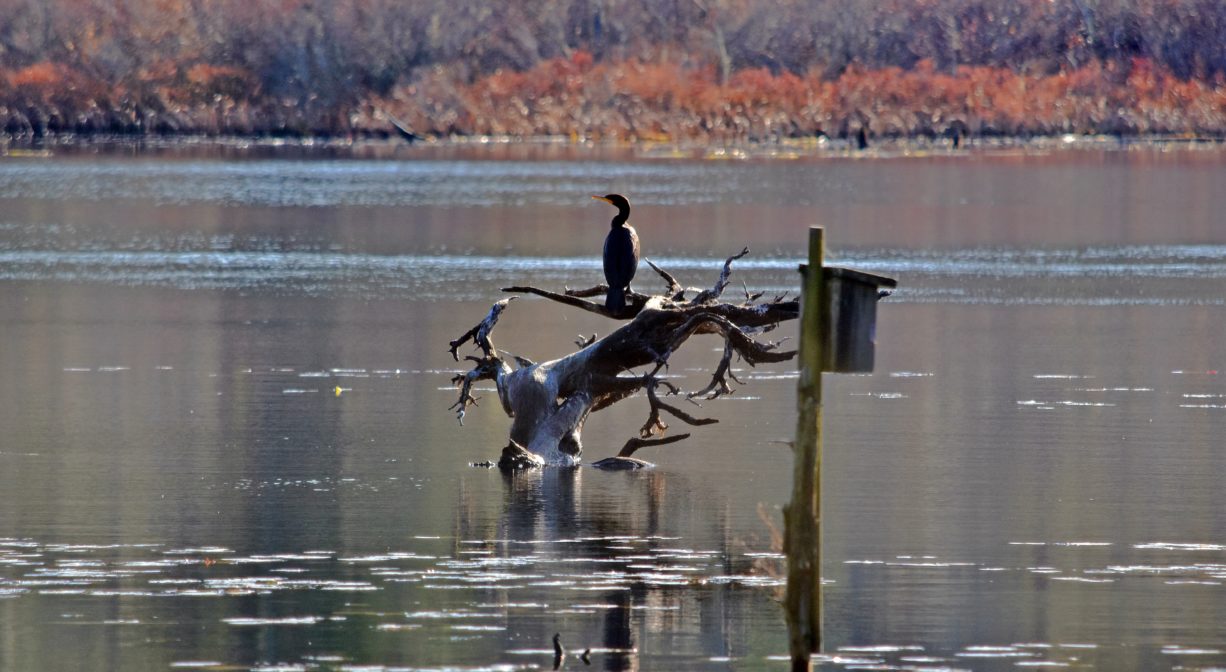Mass Audubon's North Hill Marsh Wildlife Sanctuary, Mayflower St, Duxbury, MA 02332, USA
https://www.massaudubon.org/get-outdoors/wildlife-sanctuaries/north-hill-marsh
Owned By: Mass Audubon
The North Hill Marsh Wildlife Sanctuary is a 146-acre property featuring a large pond surrounded by woods and wetlands — prime habitat for migratory waterfowl. Located within Duxbury’s 1000-acre greenbelt, it offers 9 miles of marked trails.
Unlike most Mass Audubon sanctuaries, North Hill Marsh permits dog walking. While Mass Audubon stewards the pond, marshland, and some of the surrounding forest, the trails themselves are actually located in Duxbury’s Town Forest (which surrounds the sanctuary). The Frederick B. Knapp Town Forest is maintained by the town of Duxbury, and subject to the town’s regulations.
Hunting is not permitted on this property. Please note that archery hunting for deer is permitted in a remote section of the Knapp Town Forest, nearby — in season, by licensed persons in compliance with Massachusetts law. Be sure to understand state and local hunting guidelines before proceeding. Non-hunters, be mindful of hunting seasons, and wear bright orange if you’re entering the property during those times. Hunting is not permitted on Sundays.
This property provides trail access to Frederick B. Knapp Town Forest, Round Pond Conservation Area, Cherry Lane Bogs, Waiting Hill Preserve, Green’s Harbor Path & Kettle Hole Loop, and North Hill Country Club.
Features
The North Hill Marsh Wildlife Sanctuary is part of Duxbury’s 1,000-acre Eastern Greenbelt. It lies within a larger Duxbury Conservation property, the Frederick B. Knapp Town Forest. The town owns 823 acres of pine/oak woods and wetlands, while Audubon oversees another 30 acres of upland, plus 90 acres of reservoir and marsh. Together they provide an ideal location for walking, birding and wildlife observation.
The reservoir at the center of North Hill Wildlife Sanctuary – as well as the freshwater marsh that surrounds it – was created centuries ago, when the town’s early European inhabitants dammed a brook to power a sawmill and provide water to farms nearby. In the 1920s, ownership transferred to a group of sportsmen, who used the area for duck hunting. A second dam, constructed in 1940 as part of a cranberry growing operation, raised the water level in the pond even more. Mass Audubon now maintains the property as wildlife habitat, thus dead trees are left standing (or lying down), to encourage waterfowl to feed and breed.
In earlier times, this land was within the region of the Patuxet, members of the Wampanoag tribe, who inhabited the area around the Jones River now known as Duxbury, Kingston and Plymouth. To learn more about local Native American tribes, we encourage you to interact with their members. The Mashpee Wampanoag and the Herring Pond Wampanoag share information on their websites.
Trail Description
There are 9.2 miles of trails at North Hill Marsh Wildlife Sanctuary (including the surrounding Frederick B. Knapp Town Forest land). Strollers are welcome, but may have difficulty traversing some of the terrain, especially around the pond.
The well-marked (blue) 2.7-mile Pond Loop Trail extends all the way around the pond, closely hugging the shoreline in many places. Portions are flat, but some of the trail involves elevation, so it can be a satisfying hike for those hoping to get the heart pumping. There is also a shorter loop through the woods, plus a path than runs more or less parallel to Mayflower Street, through the Frederick B. Knapp Town Forest, which is comprised primarily of tall pines.
Additional spur trails connect the property to West Street and Tremont. Visiting the Waiting Hill Preserve, in the northern quadrant of the property, involves a climb to the top of the town’s second-largest hill, which stands at 140 feet above sea level (follow the yellow-blazed trail). Alas, trees obscure what otherwise would be a broad view of Duxbury Bay.
Accessible from the southeastern corner of the property is the 1623 Green’s Harbor Path and Kettle Hole Loop, another excellent trail network. The North Hill Country Club is also directly adjacent to this property,
Habitats and Wildlife
You might see osprey at North Hill Marsh, as well as great blue herons, black-crowned night herons, kingfishers, great horned owls, red-tailed hawks, and any number of geese and ducks. Also look for tree swallows, especially near the nesting boxes posted at various points around the property.
The shallow edges of the pond are an ideal location for spotting salamanders, frogs, and turtles (snapping, painted and box), and in the warmer months, there are plenty of dragonflies and damselflies. The small mammals so common to our region – squirrels, chipmunks, mice, raccoons, opossums — are joined at North Hill by water-loving muskrats, mink, otters, plus coyote and deer, although many of these you are unlikely to spot in broad daylight.
North Hill Marsh is drained by West Brook. West Brook flows east into the Duck Hill River, which then flows into the Atlantic Ocean.
Historic Site: No
Park: No
Beach: No
Boat Launch: No
Lifeguards: No
Size: 146 acres
Hours: Dawn to Dusk
Parking: Limited on-site parking on Mayflower Street.
Cost: Free
Trail Difficulty: Easy, Medium
Facilities:
Kiosk, benches, observation platform, boardwalks. Geocache location.
Dogs: Dogs must be under your control at all times. Please clean up after your dogs, so others may enjoy this site. Note: Unlike most Mass Audubon sanctuaries, North Hill Marsh permits dog walking. While Mass Audubon stewards the pond, marshland, and some of the surrounding forest, the trails themselves are actually located in Duxbury’s Town Forest (which surrounds the sanctuary). The Knapp Town Forest is maintained by the town of Duxbury, and subject to the town's regulations.
Boat Ramp: No
ADA Access: No
Scenic Views: Yes
Waterbody/Watershed: West Brook (Duck Hill River watershed)

